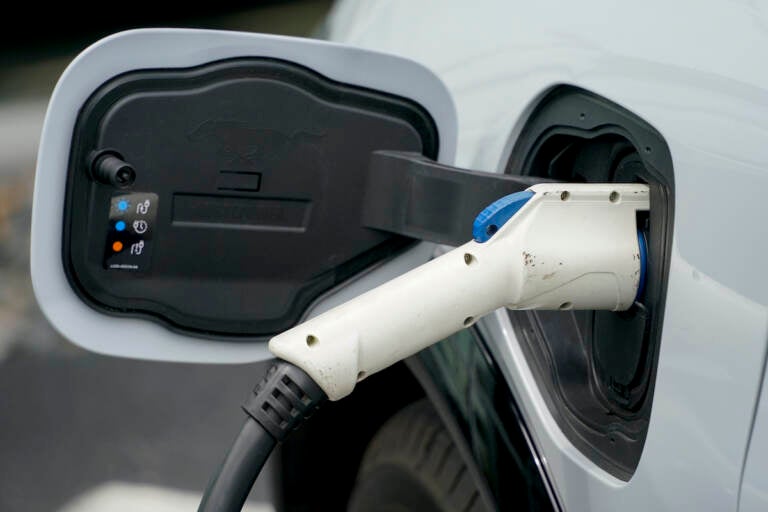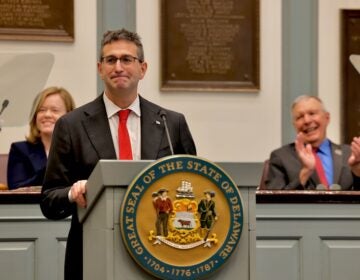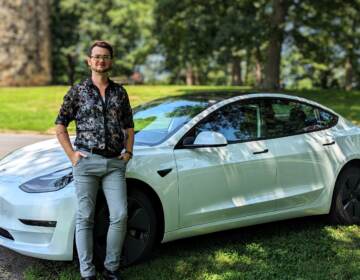Delaware launches initiative to expand electric vehicle charging
Delaware is asking the federal government for roughly $18 million to expand fast-charging electric car charging across the state.

A 2021 Ford Mustang Mach E charges at a Ford dealer in Wexford, Pa. on May 6, 2021. (AP Photo/Keith Srakocic)
Delaware’s Department of Transportation and Department of Natural Resources & Environmental Control submitted a proposal to the federal government seeking roughly $18 million for more charging stations along major routes across the state.
The project is expected to span five years and include three different phases. According to a release, the money would be coming from the Bipartisan Infrastructure Law (BIL) approved by congress earlier this year.
With the assistance of DelDOT and DNREC, the three phases will consist of:
- The first stage will involve upgrading and installing five new charging stations across the state of Delaware to comply with the Bipartisan Infrastructure Law funding requirement that charging stations for electric vehicles be available every 50 miles or more along major U.S. highways like I-95, Rt. 1, Rt. 13, and Rt. 113.
- The second phase will involve placing 6 more charging stations along other designated routes in order to achieve the state’s target of every 25 miles being available.
- In the third phase, charging stations will be installed in residential areas, with an emphasis on multi-family housing and on-street parking.
According to Jim Pappas, director of transportation resiliency and sustainability for the Department of Transportation, phase one of the initiative should begin within the next year. He plans to establish charging stations in communities including towns, municipalities, and cities over the next two to four years.
While reducing carbon emissions is the ultimate goal, according to Pappas, focus areas include resolving or assisting with major problems like range anxiety and malfunctioning charging stations.
“The other concerns that we’ve heard in Delaware is even the locations where there are charging stations now, they’re not always working,” Pappas said. “So one of the requirements with this new program is for five years…, the equipment has to be operable so that, if I have an electric vehicle or if you have an electric vehicle, we can pull up and we have kind of assurance that it’s actually going to be working.”
By 2030, the Biden administration hopes to build 500,000 charging stations nationwide in order to cut carbon emissions.
The primary source of greenhouse gas emissions caused by human activity, according to Dayna Cobb, Director of the DNREC Division of Climate, Coastal, and Energy, is transportation. She says, “Reducing emissions from transportation is a key strategy in Delaware’s Climate Action Plan.”
Alvaro Ayala, Delaware resident, is one of many who experiences ‘range anxiety’. He said, “The biggest worry is what are you going to charge? Because, you know, there’s gas stations everywhere and for EV, it’s more rare since they are so new.”
He says that having more accessibility to charging stations will be helpful especially to those who can’t have charging ports at their homes because they don’t have a garage. One thing he wishes for is for there to be a more universal charging station. For example, Tesla Superchargers are exclusive only to Tesla cars. So for example, the Mustang Mach-E or any other brand of luxury vehicles can’t really connect to the Tesla.”
As for electric vehicle sales increasing, Cobb says “We need to make sure that we have the infrastructure in place in order for people to be able to charge those vehicles.”
WHYY is your source for fact-based, in-depth journalism and information. As a nonprofit organization, we rely on financial support from readers like you. Please give today.







